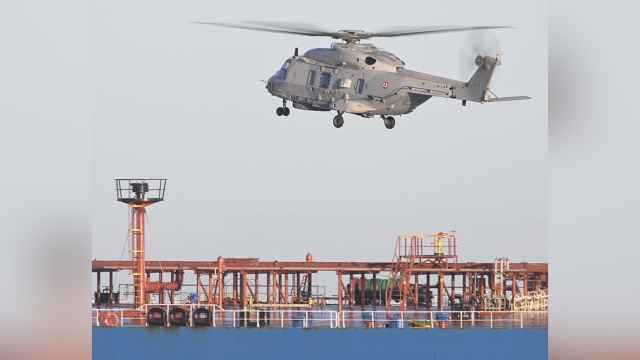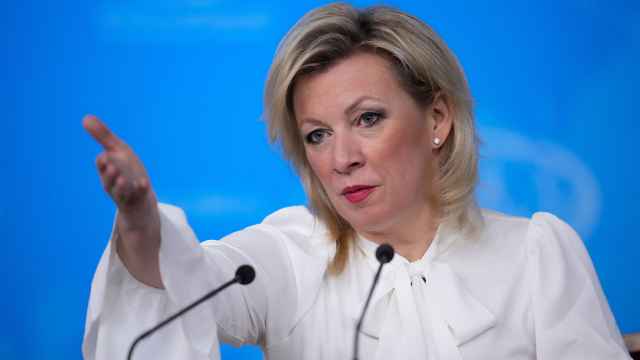The London Metal Exchange, or LME, risks having to repeat arduous preparations it made for reform of its global warehouse system if Russian aluminum giant RusAl wins a British judicial review on grounds including human rights.
United Company RusAl, the world's largest producer of the metal, will seek court permission next week for the review, in hopes of quashing LME moves that may undermine the price at which it sells its products.
The Hong Kong-listed company, which has had to cut output over the last year as aluminum prices fall below production costs, argues that the LME actions will harm its economic interests and that there were flaws in the consultation and inquiry process adopted by the exchange.
"RusAl is seeking to protect its financial position," said Igor Lebedinets, an analyst at VTB Capital in Moscow.
If the review goes ahead and in RusAl's favor, the world's largest marketplace for base metals could be forced to repeat a months-long consultation that split its stakeholders, pitting warehouse owners against industrial companies.
The application hearing, scheduled for Feb. 26 to 27, will be the first legal hurdle confronting the LME over the reforms, which are due to take effect in April. The exchange is also facing lawsuits filed by U.S. manufacturers.
The LME, owned by Hong Kong Exchanges and Clearing, oversees warehouses around the world where companies that buy metals such as aluminum or copper on its futures market can take delivery of quality-assured supplies if needed.
Big banks and traders that own warehouses and charge rent have profited from letting long queues build up for buyers to withdraw metal. Some also keep huge stocks of aluminum tied up, unavailable to manufacturers, in long-term financing deals.
The new regulations aim to cut queues and raise loading-out rates at warehouses with big log-jams while fending off criticism from end users like Novelis, which supplies metal to Coca-Cola and brewer MillerCoors about inflated prices and distorted supplies.
Producers, squeezed by high energy prices and facing a flood of Chinese capacity, say the changes could remove underpinning from aluminum prices depressed by a global glut of metal that over years has built up record-high stockpiles.
Since early November cash LME prices have been less than $1,800 per ton, which is close to or below break-even for a big portion of global capacity.
"There is a structural problem of oversupply, which China is not doing its share in addressing, and that means a company like RusAl is under real pressure," said a London analyst.
"So they will do anything they can to increase their revenues, including going to court to try and stop these LME changes," added the analyst, who declined to be named.
RusAl, which posted a recurring net loss of $132 million in the third quarter, fears the changes will lower premiums which consumers pay on top of LME cash prices for immediate delivery.
Aluminum premiums shot to record highs in January but they are volatile and likely to fall over the longer term.
"It is still a very vulnerable situation. RusAl knows they cannot rely on premiums being at these levels forever, it is not a good business plan to assume that," the London analyst said.
RusAl is challenging the LME's decision on three grounds, a source close to the company said.
It believes the LME's consultation process was procedurally flawed, it failed to undertake a sufficient inquiry, and the decision amounted to a breach of RusAl's rights under the European Convention on Human Rights, the source said.
The convention gives every person, including companies, the right to the peaceful enjoyment of its possessions. Economic interests and goodwill associated with a business are regarded as falling within the definition of possessions.
The LME said it considers the grounds of RusAl's complaint as without merit and it will defend any judicial review proceedings vigorously.
A Message from The Moscow Times:
Dear readers,
We are facing unprecedented challenges. Russia's Prosecutor General's Office has designated The Moscow Times as an "undesirable" organization, criminalizing our work and putting our staff at risk of prosecution. This follows our earlier unjust labeling as a "foreign agent."
These actions are direct attempts to silence independent journalism in Russia. The authorities claim our work "discredits the decisions of the Russian leadership." We see things differently: we strive to provide accurate, unbiased reporting on Russia.
We, the journalists of The Moscow Times, refuse to be silenced. But to continue our work, we need your help.
Your support, no matter how small, makes a world of difference. If you can, please support us monthly starting from just $2. It's quick to set up, and every contribution makes a significant impact.
By supporting The Moscow Times, you're defending open, independent journalism in the face of repression. Thank you for standing with us.
Remind me later.





